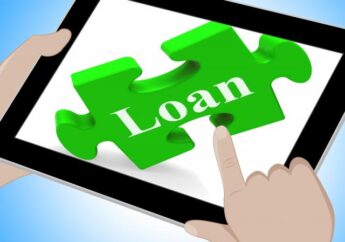What Should You Know Before You Refinance?
by Abdul Aziz Mondal Loans & Credit Published on: 08 June 2018 Last Updated on: 20 May 2025

When you eliminate your old mortgage and get a new one, it’s called refinancing. When you refinance, you’re theoretically going to get the advantage of better loan terms and a lower interest rate.
When you go to the bank to refinance, the original loan is paid off, and then a second loan is created. If you have great credit, you can end up saving a lot of money, and you may be able to go from a variable rate to a fixed interest rate loan. However, there are things to know, and there can be risks to refinancing.
So what should you know, generally, before you consider refinancing your home or any kind of property?
Properties in a Trust :
Clint Coons, a lawyer, and contributor to the Anderson Advisors blog brings up an interesting topic. What about refinancing a property that’s part of a trust? If that’s the case, what should you do?
“My suggestions; therefore, would be to transfer the loan back into your name before going to the bank,” writes Coons in an article on the topic.
It’s not uncommon to have a property that’s part of a living trust, a land trust or an LLC, but if you want to refinance the loan and you don’t go through the proper channels, it can create problems. You may be able to refinance if the property is part of a trust, but it can be confusing to underwriters, and that’s the last thing you want if you want a seamless, fast process.
Why Do You Want To Refinance?
Along with the specifics of how to handle properties in a trust or LLC, you also need to think about why you want to refinance.
The “right” reason is to lower your interest rate. You should never refinance to lengthen your loan term. If anything you should try to shorten it.
Also, make sure you know your credit score. If you don’t have a good credit history and score, trying to refinance isn’t your best option because you’re probably not going to be offered a better rate. If you don’t have a score at least in the mid-700s, you’re not going to qualify for the lowest rates in most cases. You ultimately pay higher interest rates or fees.
You’re also going to need equity in your home. Typically, to qualify for a new loan, you should have at least 20 percent equity, according to Investopedia.
Factor In All the Costs :
Finally, if you jump the gun on a refinance, you may find that you’re paying a lot of money in fees. Home loan refinancing can mean you’re on the hook for application fees, appraisal costs, origination fees, document processing fees, underwriting fees, tax transfer fees, and many more.
You need to talk to each lender you’re considering working with and get a full, transparent breakdown of any and all fees.
Hal M. Bundrick, CFP, writes on Nerdwallet that people should be cautious of the whole pitch for a no-cost refinance. He says that in these situations the lender is usually tacking on upfront fees into the ongoing costs of the loan. This can mean a higher interest rate or loan balance.
Read Also:



































































































